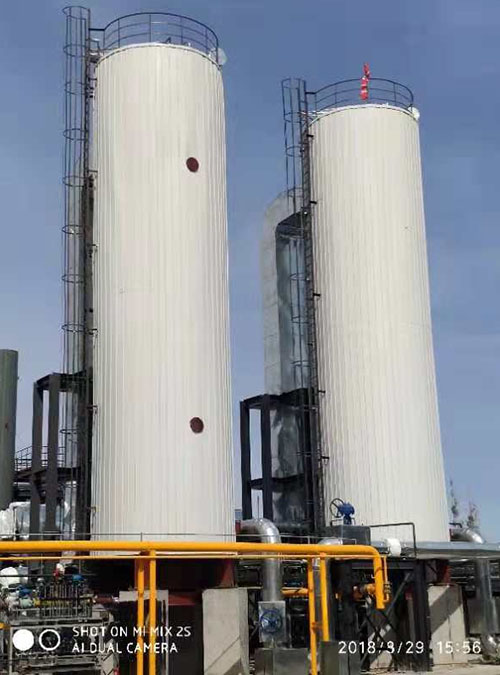There are two major technical challenges that have long troubled users of natural gas-fired thermal oil heaters in the polyester industry: 1) the inability to ensure the complete combustion of waste gas and waste liquid in the heater while maintaining safety, and 2) the difficulty in achieving pollution-free ultra-low nitrogen emissions when burning waste gas and waste liquid alongside natural gas.
CEEF, in cooperation with relevant units, has successfully tackled these two challenges in the polyester industry with two 12 million kcal/hour thermal oil heaters. While safely co-burning waste liquid and waste gas, the heaters achieve pollution-free emissions of waste liquid and waste gas, as well as ultra-low nitrogen emissions under multi-fuel conditions (with NOx <80mg/Nm3 when using hot air-assisted combustion).
The fuel used by these thermal oil heaters is relatively complex, primarily consisting of natural gas. During the combustion process, the heaters need to handle waste liquid containing about 50% tetrahydrofuran produced during manufacturing, as well as esterification water and tail gas generated in the production process. Each thermal oil heater processes more than one ton of waste liquid and over two tons of waste gas per hour.
Local environmental online monitoring results show that during the combustion process, the nitrogen oxide emissions from the heater remain at the level of 60-70mg/Nm3, with an oxygen content of 2-3%, ensuring stable combustion. The breakthrough of this technology provides a guarantee for environmental emissions in the polyester industry.
At the same time, the YWQ-850Q gas-fired thermal oil heater is currently undergoing installation at the user’s site.

